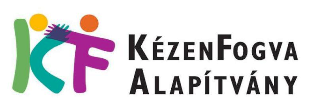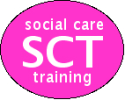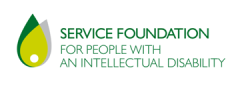STEPS (Sharing The European Pathways)
STEPS
The EU and its member states are all committed to a policy of de-institutionalisation (DI) and the implementation of the United Nations Convention on the Rights of Persons with Disability (UNCRPD) and the EU’s own 2020 Disability Strategy. DI is a challenging policy and the 4 main partner nations in this project (FI/RO/HU/UK) are at different stages along the way. They have come together to share their experiences and learning and to promote the idea that people with disabilities are ‘experts by experience’ and can, with appropriate help, contribute to the task of retraining staff and residents of institutions in the process of moving out into community based settings.
The STEPS project (Sharing The European Pathways) provides 2-3 hour long training sessions covering a range of things staff and residents will need to do differently when they move out if the new service is to be based on the UNCRPD principles such as rights, inclusion, choice and independence and not the old ‘medical model’ of care where ‘nurse knows best and just do as you are told and we will get along just fine.’ The partners are all either heavily involved in DI processes and/or in the provision of staff training for those working with a disability. A Belgian partner has a dedicated evaluation role.
The training materials are all derived from current training packages in the UK & FI, but have been re-fashioned to meet the specific need of this project to provide tailored training opportunities to groups with particular needs. An additional aspect of this project is the use of ‘co-trainers’ (who are people with disabilities themselves) as one half of a co-training partnership to train staff, residents and their families/ friends. Not all STEPS training session will require a co-trainer, but experience has shown that using a co-trainer can make a big impact on staff being trained.
Co-trainers will be coached and given support to fulfil their role. We hope this will be the start of wider use of co-trainers. Materials will be made freely available in ‘universal’ format in English (ie with no reference to any one country, institution or place etc) and they will be ‘localised’ by partners so they will look and feel like a local document, with recognisable local names, places, laws etc. ‘Easy Read’ versions of relevant documents will be available.
The training sessions deal with both practical matters from the point of view of residents, their families and staff – such as; handling personal and household money, doing the shopping and the cooking, keeping the house clean, getting on with the neighbours etc and also more attitudinal/philosophical matters – such as: who is ‘in charge’ in ‘my’ home? Are staff ‘carers’ or enablers? What do we do about people taking risks?
We will collect feedback from all the training sessions and from manager of services where STEPS training has taken place. There will be two cycles of training to allow for review and revision of the materials and methods used. Co-training partnerships will be supported by a number of senior trainers who will all have attended an intensive 5 day training course to learn the materials thoroughly. We will seek formal approval for the STEPS training from the relevant bodies.
We hope that the results will be staff who are better trained and supported to fulfil their new role and work in a new manner, seeing themselves as supporting someone to ‘get a life’ in the community, rather then caring for them and controlling every aspect of their lives. We hope people with disabilities who moved out and their families will begin to see changes in the way staff work and will themselves come to realise that people with disabilities have the right to live as near normal lives as possible in the community. With the right kind of support, many can do this and the job of enabling them do this and seeing them blossom into full rounded characters is very rewarding for all concerned.
DI is not easy to do well. Changing the attitudes of staff who have worked in an institution and the residents who have lived there is not easy either. STEPS will provide those charged with delivering on DI with more effective tools for making this change.
STEPS Newsletter Summer 2017
Materials
Hungarian materials are available at the following link:
https://goo.gl/forms/Cn0rk1RedJAONtey2
English materials are available at the following link:
https://goo.gl/forms/E1572TJZrC7eNJRO2
Finnish materials are available at the following link:
https://drive.google.com/open?id=1-0Cqx33y4UBwY6kWb1CgVAxWaXojdw-K
Romanian materials are available at the following link:
https://drive.google.com/drive/folders/1MjQNFDhyGF_PHFWjVNQD6CG31oHsFRRH...
The Partnership
Hand in Hand Foundation, Hungary
http://kezenfogva.hu/
Hand in Hand Foundation has been working for the creation of a community in which people with disabilities can live with dignity since its foundation in 1993. Our work has always been centered on the needs of people with disabilities, whom we try to reach in their own environment, both directly & indirectly, in all phases of their lives. As a result of such complex meaning of walking Hand in Hand, our tasks are also complex. Though our team is small, we are capable of reacting to challenges quickly. Our conviction that the social, professional & institutional structures can & must be changed makes us pioneers in the profession.
Social Care Training Ltd, United Kingdom
www.sctltd.eu
As its name suggests, SCT’s particular area of expertise is training in social care, with a particular interest in disability (especially learning disability) issues, residential and domiciliary care and the provision of training and assessment systems for support staff. It operates with a small core staff of two directors, supported by a range of specialist training consultants selected and employed on a project by project basis, enabling the closest possible ‘match’ between the skills of those employees selected and the requirements of a particular project.
Fundatia Alpha Transilvana, Romania
http://www.alphatransilvana.ro/
Alpha Transilvana Foundation is a charitable and humanitarian NGO without political, ethnic, racial, or religious affiliations. Its purpose is to provide social assistance to persons with physical and mental disabilities and other people in need. In 22 years of continuous activity, we have been through many phases. Step by step, we grew from a rather small charitable organization to a multifunctional service provider offering the following: recuperation and rehabilitation services for children with disabilities, support and orientation for professional integration, re-adaptation and re-education, and other general measures aimed at supporting people in their times of need. Mission statement: Working in and for the community, we are close to the real pulse of life. As an organization, we consider it to be our calling to be sensitive and to fill the thousands of needs of personal, family and community life, needs that due to their extraordinary diversity cannot be filled solely by laws and funds.
Kehitysvammaisten Palvelusäätiö, Finland
http://www.kvps.fi/
Service Foundation for Persons with Intellectual Disabilities is a national developer of services, which provides support for persons with intellectual disabilities as well as their families. The purpose of the Service Foundation is to find and develop new ways to ease the everyday life and improve the quality of living of persons with an intellectual disability and their families. The objective is to create models of human, functioning and good quality services.
inproof, Belgium
http://www.inproof.eu/
inproof – international project office – assists organisations in implementing European projects efficiently and effectively via tailored and straightforward advice, tools, training and coaching, with a focus on the social profit sector and schools.
We write project drafts for organisations who do not have the time to find out all details & requirements of EU Calls for Proposals. We also take care of copywriting for your website, in English or Dutch.
For schools, inproof develops real-life case studies for pupils, containing competencies which teachers wish to test or evaluate within their target group, e.g. as part of the course project or office management.
